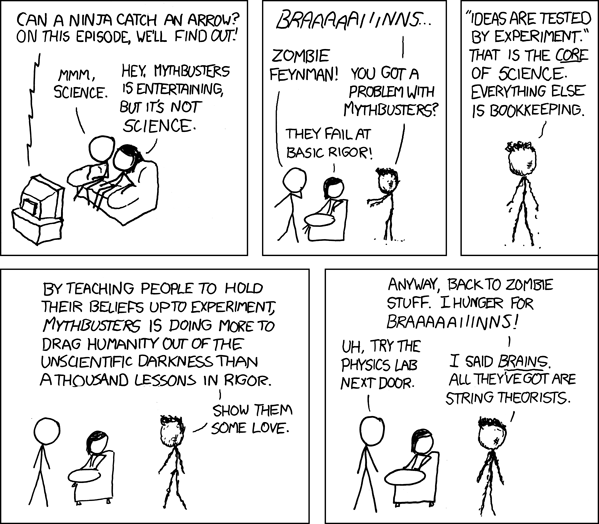 A colleague recently said that Optimality Theory is the String Theory of our field, so maybe we are already back to linguistics … . In the meantime, I bow before the genius of xkcd.
A colleague recently said that Optimality Theory is the String Theory of our field, so maybe we are already back to linguistics … . In the meantime, I bow before the genius of xkcd.* Of course you need to go to here for the rollover text.
Deal with it.
Revel in it.
 A colleague recently said that Optimality Theory is the String Theory of our field, so maybe we are already back to linguistics … . In the meantime, I bow before the genius of xkcd.
A colleague recently said that Optimality Theory is the String Theory of our field, so maybe we are already back to linguistics … . In the meantime, I bow before the genius of xkcd.
7 comments:
I think I need a beer.
String theory might be onto something though...
Ouch, Cassady, that's gotta sting.
Could you explain exactly what you mean when you say optimality theory is the string theory of linguistics? I don't quite get the connection...
Happily, if not exactly. (I'm assuming you know some phonology.)
First, just to be clear, I didn't assert that, but reported that I'd heard it. In fact, it wasn't just that I happened to hear it recently from a colleague (as I did), but that it's a minor thread among phonologists in particular who don't think OT works very well.
Like in the cartoon, old school (I guess that should be old skool) physicists harbor reservations about String Theory, including sometimes that it's not testable, too much machinery for what it does, overly abstract -- those kinds of things.
People who make this comparison have the view of OT that it likewise tends to be wild theorizing that isn't being rigorously enough tested against all available evidence and so on. One particular issue, for instance, would be the problems OT has had with handling opacity, something pervasive in the languages of the world.
If that doesn't help, I can follow up later.
Thanks, Mr. V! That's what I thought the statement meant, but I didn't want to comment further based on an assumption.
I understand it's not your assertion, so I guess this is just an open question to anyone who wants to answer it. IF these criticisms are true of OT, how is it that they aren't also true of other theories of grammar (such as, say, Minimalism or Distributed Morphology or SPE-style rules, etc.)? What makes OT less testable, less rigorously tested, more abstract or more "string theory-like" than other linguistic theories?
Also, how pervasive is opacity really? (I'm not trying to be obnoxious, I really want to know!) I'm still a newbie (i.e. lowly grad student), but every time I hear someone talk about opacity, they mention the same Hebrew examples.
But, back to point of the original post, yes, all bow to xkcd!
Oh no, a serious discussion of linguistic theory on this blog!?!? I suppose that after so many posts on beer and science, cartoons, and the rantings of utterly unhinged prescriptivists, maybe it is time to wade into the theory wars. I'll try to get together a post on the topic soon. In the meantime, two quick points:
(1) I'd say that good testing is a major issue for all of linguistic theory and all scientific theories -- it's hardly trivial. It seems like a lot of trained scientists regard all of the theories you mention as downright simplistic, overreaching, etc. (Again, I stress that this is not my own person position.)
(2) Opacity is really pervasive in human language. It's an odd development that it's been reduced to a few examples from one language. Maybe that's a starting point for a post.
Post a Comment